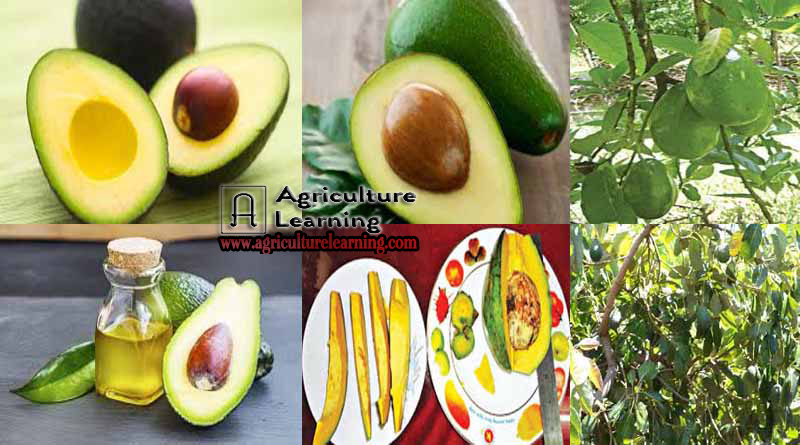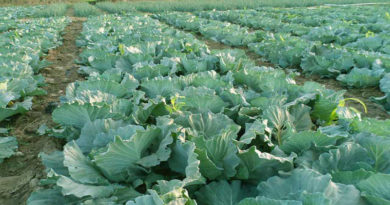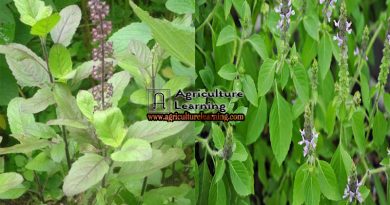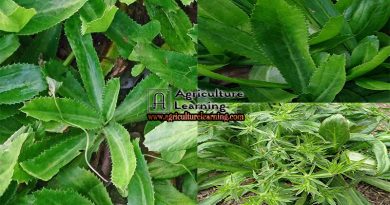Avocado fruit Production technology in Bangladesh
Avocado is an ancient fruit, originated mainly from Central America and Mexico. The word “Avocado” comes from the word “Ahucatl”, which means testicle. The tree was commonly referred to as the „testicle tree‟ because of the shape of the avocado and the way they hung from the tree. Discoveries have found that Avocado existed over 14,000 years ago, but it was originally recognised by the Aztecs. They believed this fruit to be an “Aphrodisiac”.
The botanical name of avocado is Persea americana. It is also known as: Alligator Pear, Butter fruit, Makhanphal (Hindi), Kulu naspati, Vennai Pazham (Tamil), Alpukat (Marathi), Magar Nashpati (Urdu), Benne Hannu (Kannada), Venna Pandu (Telegu). Popenoe (1935) considered the avocado as “God‟s greatest gift to humanity”. Today, this fruit is highly regarded as an important fruit for food and nutrition. Avocados are rich in important human nutrients and antioxidants for good health. The avocado fat consists predominantly of monounsaturated oleic acid, which has been found to reduce harmful LDL cholesterol while maintaining beneficial HDL-cholesterol, performing better than the usual low-fat diet. In addition, the avocado has various uses as a natural cosmetic, with advantages in rapid skin penetration, and as a superior natural sunscreen.
However, remarkable development of this fruit has been recorded in every continent. Unfortunately, this fruit has not yet been popularized in Asia, most likely due to unawareness of its merits/qualities. Indeed, real starvation and malnutrition are very common in a number of Asian countries. In a country such as Bangladesh, this situation is even worse. Growing of avocados could be helpful in averting this condition, whose product has a relatively high food, nutrition and market value. Yet, cultivation of avocado in Bangladesh is somewhat problematic.
Therefore, there is immense need to encourage, develop and implement an appropriate production technology of avocado in Bangladesh.
Health Benefits of Avocado Fruit:
- Avocado has the most protein concentration than any tropical fruit, and contains all of the essential amino acids.
- Avocados are good for heart, vision and digestion.
- Avocados are a good source of fiber.
- Avocados are natural detoxification fruits.
- Avocados may help in preventing osteoporosis.
- Avocados may help in fighting against cancer.
- Avocados are good for pregnant women.
- Avocados may help in weight loss.
- Avocados may lower cholesterol &triglyceride levels.
- Avocados may help in protecting chronic diseases.
- Avocados may help in lowering the risk of depression.
Cultivation area of avocado fruits in Bangladesh:
Cultivation of avocado, a green-skinned and egg-shaped exotic fruit, is gaining popularity in Rajshahi, Chapainawabgan, Dinajpur, Bogura and some other parts of the country.
Varieties of Avocado in Bangladesh:
Bangladesh is one of the most suitable countries for producing avocado. Both tropical and subtropical varieties can be grown here-
- Cocktail Avocado persea Americana
- Bacon Avocado Persea Americana ‘bacon’ (B cultivar)
- Geada Avocado Persea Americana ‘geada’
- Quintal avocado persea Americana ‘Quintal’
- Fortuna Avocado Persea Americana ‘Fortune’
The other varities are Fuerte (B cultivar), Reed ( A cultivar), Zutano, Hass( A cultivar), booth 7, Booth 8, sharwil (b cultivar), Ettinger (bB cultivar), Lula (A cultivar) etc.
Climate required for avocado fruit:
Avocado plants are grown in tropical and semi- tropical humid areas. These plants cannot tolerate hot dry winds and frost.
Soil Requirement for avocado Fruit:
These fruits can be grown on a wide variety of soils except on poorly drained soils as these plants are very sensitive to waterlogging. Avoid the saline soils as these plants cannot tolerate saline conditions. The optimum soil pH should be between 5.0 and 7.0 for better growth and yield.
Irrigation of avocado fruit:
Irrigation should be carried out as soon as the transplantation takes place in the main field. Subsequent irrigations can be carried out 3 to 4 weeks interval, especially in dry hot weather conditions. There is no need of irrigation in the rainy season. In case of heavy rains or flooding, water should be drained out as avocado plants are very sensitive to water stagnation.
Pests and Diseases Management:
In the avocado plantation, the common pests found are mealybugs, scales and mites. Control measures should be taken by spraying appropriate insecticides.
Diseases found in an avocado plantation are fruit spot, leaf spot and root rot. To control the root rot disease, apply metalaxyl by mixing with soil just before planting the seedlings.
Harvesting Process:
Plants grown from seeds will be ready for fruit harvesting in 5 to 6 years after planting. There are two varieties of fruits in avocado farming, purple and green. To determine the maturity of the fruits, the color change should be observed. Generally, purple variety will change to color from purple to maroon whereas in green variety, color change from green to yellow. Avocado fruits will be ready for harvesting when the seed coat changes its color from yellow-white to dark brown color. These fruits only soften after harvest and it takes 5 to 10 days for ripening.
The Yield:
The yield depends on the variety, age of the tree and farm management practices. An average yield of 200 to 500 fruits can be obtained. From 10 to 12 years old trees, the yield can be expected from 300 to 400 fruits per tree.




